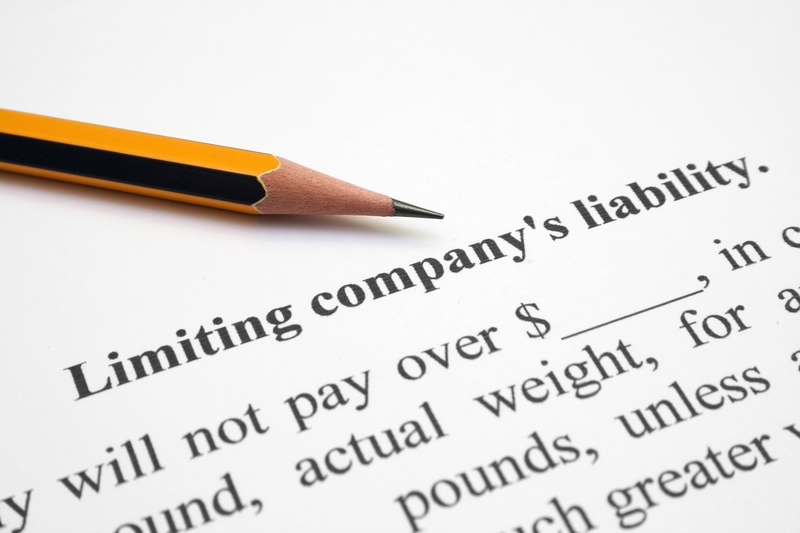Effortless Ways to Prepare Your Home for Final Inspection
Getting ready for a final home inspection doesn't have to be a stressful ordeal. With a smart approach and organized checklist, you can effortlessly prepare your home for its last review. Ensuring your property is inspection-ready not only makes the process smooth but also increases the confidence of buyers or renters, helping seal the deal. In this comprehensive guide, discover simple yet effective ways to prepare your home for final inspection and leave a lasting impression.
Understanding the Final Inspection Process
Before you begin, it's essential to know what a final home inspection involves. The final inspection--also called a pre-settlement inspection or final walkthrough--allows buyers (and sometimes sellers or landlords) to verify that:
- The home is in the agreed-upon condition
- Repairs have been completed as promised
- Fixtures, appliances, and systems are functional
- No new damage has occurred since the last visit
Final inspections are usually scheduled shortly before settlement. Here are some hassle-free methods to ensure your property is ready for inspection without breaking a sweat.

Effortless Preparation Tips for Final Home Inspection
1. Start with a Detailed Checklist
One of the most effective ways to prepare your home for final inspection is to use a checklist. This keeps you organized and prevents last-minute panic. Your checklist should cover:
- Repairs (both minor and major)
- Cleanliness of each room
- Functionality of appliances
- Exterior and landscaping
- Documentation for completed repairs
Having a well-outlined plan reduces stress and ensures nothing gets overlooked.
2. Focus on Curb Appeal
First impressions matter! Preparing your home for inspection should always start from the outside. Make sure your landscape is tidy, the lawns are mowed, and walkways are free of clutter. Effortlessly boost your exterior by:
- Raking leaves or removing debris
- Trimming bushes and hedges
- Wiping down doors and entrances
- Touching up peeling paint or repairing minor flaws
3. Clean Thoroughly, Room by Room
While deep cleaning might seem overwhelming, breaking it down helps you prepare your house for final inspection effortlessly. Focus on:
- Kitchen: Wipe countertops, clean out appliances, and empty trash bins
- Bathrooms: Scrub sinks, showers, and toilets; replace empty toiletries
- Bedrooms and Living Areas: Dust surfaces, vacuum carpets, and tidy up
- Closets and Storage: Organize contents, ensuring access for inspectors
For extra convenience, consider hiring a professional cleaning service--they save time and guarantee quality.
4. Address Outstanding Repairs
Inspectors will check if agreed repairs have been completed. To avoid delays:
- Complete all outstanding repairs, no matter how small (leaky faucets, squeaky doors, cracked tiles)
- Double-check work quality--sloppy repairs raise red flags
- Keep receipts and documentation ready for the inspector
5. Test All Appliances and Fixtures
Ensuring that all appliances and fixtures function correctly is crucial when preparing for a final home inspection. Don't overlook:
- Kitchen appliances (oven, refrigerator, dishwasher)
- Heating and cooling systems
- Lighting fixtures, fans, and ceiling lights
- Water heaters, smoke alarms, and carbon monoxide detectors
Replace light bulbs and batteries as needed. Simple fixes like these leave a positive impression.
6. Check Windows and Doors
Home inspectors and buyers will check that all doors and windows open and close easily. Address sticking, warped, or broken latches, and make sure window locks operate smoothly. Clean windowpanes and tracks for an extra sparkle.
7. Declutter and Depersonalize
A tidy, neutral space feels more inviting and helps buyers imagine their own life in the home. Effortlessly prepare your home for inspection by:
- Removing personal photos, memorabilia, and excess decor
- Clearing countertops and shelves
- Storing away children's toys and pet items
8. Offer Clear Access
Final inspectors need to examine basements, attics, crawl spaces, and utility rooms. Make sure these areas are easily accessible:
- Move boxes or stored items away from doors and panels
- Unlock gates and garages
- Ensure fences and boundaries are clearly marked
Clear access prevents delays and shows your home is well cared for.
9. Prepare Documentation
Having all paperwork ready lets you effortlessly address inspectors' questions. Gather:
- Receipts and warranties for recent repairs or upgrades
- Service records for appliances and systems
- Copy of home inspection reports and compliance certificates
This level of organization builds trust and credibility.
Quick Tips for Effortless Home Inspection Preparation
Make a Last-Minute Check
The day before the inspection, do a walk-through yourself. Look at your property through the eyes of a first-time visitor and check:
- If anything is out of order
- That trash is taken out
- Lights and toilets are working
- Every room smells fresh and is inviting
Pet and Odor Management
If you have pets, secure them safely or arrange for them to be away during the inspection. Neutralize any lingering odors with gentle, non-intrusive air fresheners and keep litter boxes or pet beds clean. This simple touch enhances the atmosphere for all visitors.
Highlight Energy-Efficient Features
If your home includes energy-efficient upgrades such as insulation, double-glazed windows, or solar panels, point them out. Provide documentation to back up your claims, as this can increase the value and appeal of your property.
Common Final Inspection Mistakes and How to Avoid Them
- Overlooking Small Repairs: Even tiny issues can delay settlement.
- Forgetting to Clean Hard-to-Reach Spots: Inspectors check behind appliances and inside cabinets.
- Neglecting the Exterior: Don't forget to remove debris, tidy the garden, and hide trash bins.
- Not Double-Checking Fixtures: Missing or broken lightbulbs can be flagged.
- Leaving Clutter in Access Points: Blocked attics or basements will draw negative attention.
Effortless Solutions to Common Issues
- Apply touch-up paint and fix scratches or dings on walls.
- Use all-purpose cleaning wipes for quick touch-ups before the inspector arrives.
- Organize loose wiring or cables with simple cord management tools.
- Install doorstops to prevent wall damage.
Benefits of Effortless Home Inspection Preparation
Taking a proactive and organized approach to your home's final inspection process offers many advantages, including:
- Faster settlement and closing--less likelihood of issues causing delays
- Increased buyer confidence--clean, well-cared-for homes are more appealing
- Potential for higher final sale price--minor details can tip the scales in your favor
- Reduced stress and worry--organization allows a smoother transition for all
Ultimately, these simple strategies for preparing your home for final inspection make the process more enjoyable and successful.
When to Consider Professional Help
If your schedule is tight or your home needs substantial work, consider enlisting professionals:
- Cleaning services--deep clean every room in a fraction of the time
- Handyman or contractors--address repairs accurately and efficiently
- Landscapers--refresh your yard in a single visit
Though it's an extra investment, professional services can help you prepare your home for final inspection easily and guarantee top results. Always get quotes and read reviews before hiring!
Effortless Inspection Preparation: Room-by-Room Checklist
- Kitchen: Check all appliances, clean surfaces, ensure no leaks or odors
- Bathrooms: Scrub thoroughly, check plumbing, ensure ventilation works
- Bedrooms: Dust, vacuum, store away personal items
- Living room: Tidy up, ensure lighting and entertainment systems work
- Laundry: Check appliances and utility sinks, clear lint traps
- Garage: Organize tools and equipment, sweep floors, inspect doors
- Exterior: Lawn mowed, walkway cleared, trash bins hidden
- Attic and Basement: Accessible, dry, well-lit for inspection
Print and use this as your go-to guide for seamless home preparation before the final walkthrough.

FAQs: Effortless Home Preparation for Final Inspection
How far in advance should I start preparing for the final inspection?
It's best to begin at least two weeks before the scheduled inspection. Starting early gives you time to address repairs, deep clean, and organize without feeling rushed.
Do I need to be present during the final inspection?
While it's not obligatory, being present during the inspection allows you to quickly address questions and provide documentation or receipts if needed.
What should be my top priority during preparation?
Focus on repairs, cleanliness, and making sure all appliances and systems are functional. These areas are most scrutinized by inspectors and buyers alike.
Can minor imperfections fail my inspection?
Inspectors usually note minor issues but focus on safety, compliance, and agreed-upon repairs. Addressing small issues proactively, however, creates a better overall impression.
Should the home be completely empty?
Not necessarily, unless contractually required. However, removing clutter and personal articles makes the process easier for everyone.
Conclusion: Make Your Final Home Inspection Effortless
Preparation is the key to a seamless, stress-free final home inspection. By focusing on cleanliness, completing repairs, and presenting documentation, you'll leave buyers and inspectors with a positive impression. Adopting a step-by-step approach ensures that your property is inspection-ready with minimal effort on your part. Use these effortless ways to prepare your home for final inspection and approach settlement with confidence and peace of mind!
Remember: Attention to detail and early preparation are your best allies for a smooth transition and a successful sale!



